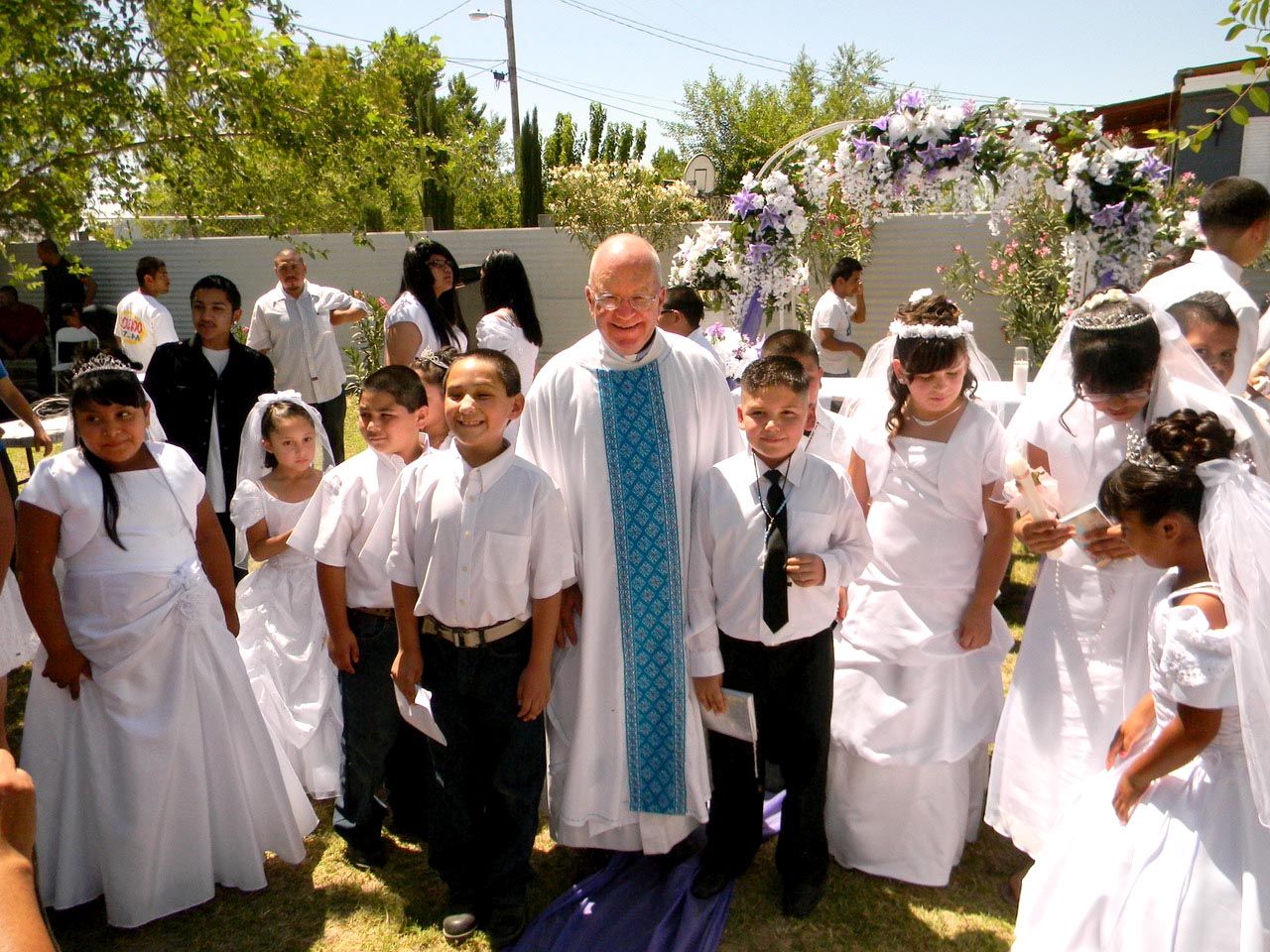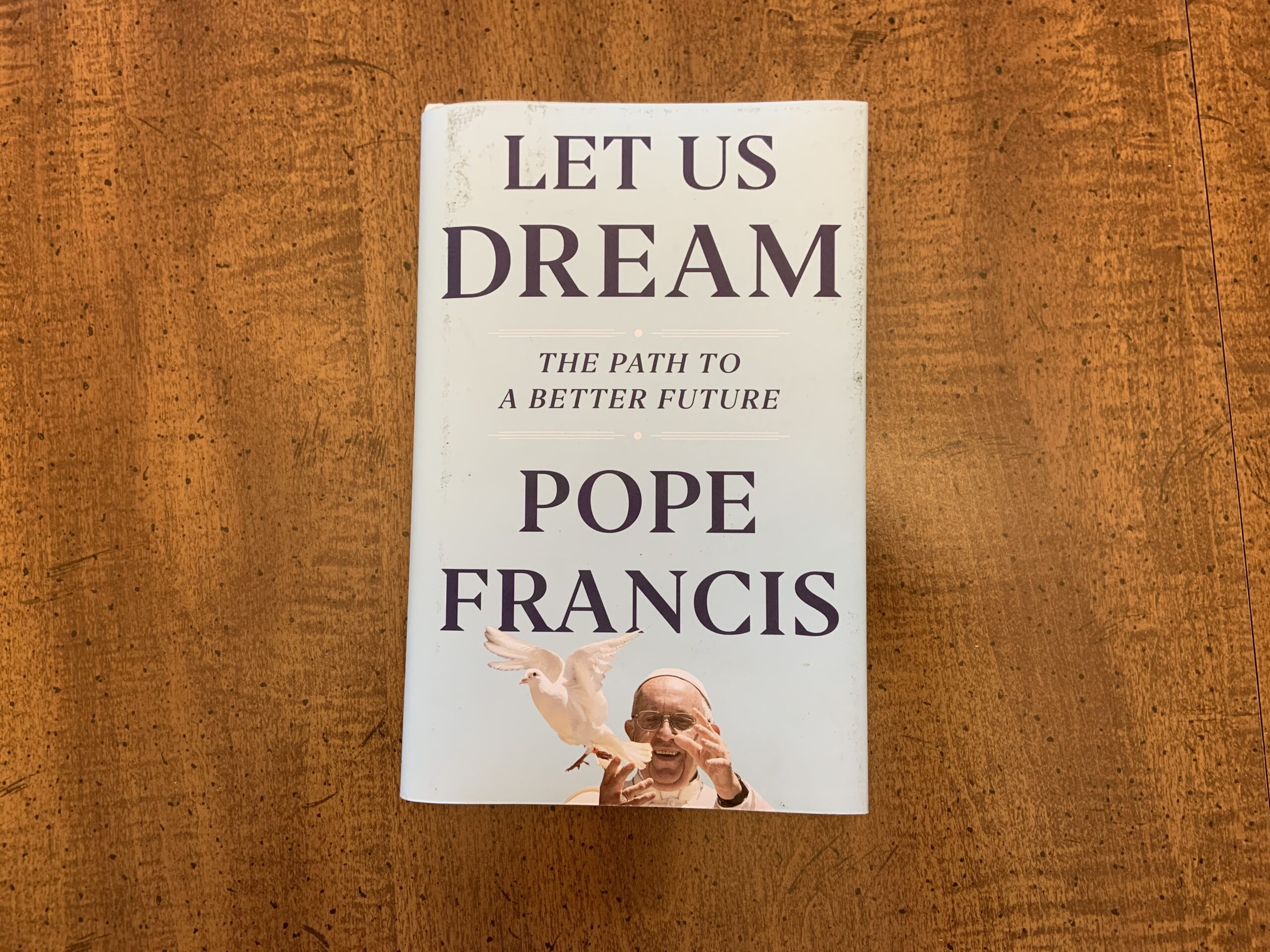#2. A New Normal – Un Nuevo Normal: Lo viejo es nuevo y lo nuevo es viejo – What is old is new, and what is new is old
Lo viejo es nuevo y lo nuevo es viejo
“La pastoral en clave misionera busca abandonar la actitud complaciente que dice: ‘Siempre lo hemos hecho así’. Invito a todos a ser audaces y creativos en esta tarea de repensar los objetivos, estructuras, estilo y métodos de evangelización en sus respectivas comunidades “. (Papa Francisco, EG 33)
“Ellos (los misioneros redentoristas) deben interrogarse periódicamente si sus medios de evangelización empleados en el respectivo lugar responden a las expectativas de la Iglesia y del mundo; si se deben renovar y cómo los métodos apostólicos para mantener los válidos, corregir los defectuosos y abandonar los inadecuados.” (Constituciones y Estatutos Redentoristas, n. 17)
El Papa Francisco nos llama a “ser audaces y creativos” al responder a los desafíos de la evangelización. Necesitamos repensar nuestros objetivos, estructuras y métodos de evangelización. La llamada a nuevas ideas, nuevos métodos y nuevas estructuras dentro de la Iglesia es el camino de Jesús. Cuando los fariseos llevaron a Jesús a una mujer sorprendida en adulterio, la juzgaron, la condenaron y quisieron apedrearla hasta la muerte. ¿Qué hizo Jesús? No les respondió. Dibujó en la arena. La ira de los fariseos lo empujaba a responder su pregunta. Después de que él dijo que él que no tenía pecado arrojara la primera piedra, comenzaron a alejarse. Cuando todos se fueron, simplemente preguntó: “¿Nadie te ha condenado?” Ella dijo: “No, señor”. Y Jesús dijo: “Ni yo te condeno”.
No hay límite de la misericordia de Jesús. El mensaje de Jesús es la ley del amor, no una regla que juzga o condena. Les dijo a sus discípulos que no juzguen ni condenen. Tenemos que ser guiados por las palabras de Jesús. “No juzguen y no serán juzgados. No condenen y no serán condenados”.
Lecciones de la mision sacramental en The Dalles:
Lo más destacado de mi vida redentorista han sido los veranos que pasé en The Dalles, Oregon durante la cosecha de cerezas. Comenzó simplemente con la celebración de la Misa en los campamentos de migrantes, cada día visitando una huerta diferente. El segundo verano, le pregunté a la gente: “Si regreso el próximo año, ¿qué más puedo hacer para ustedes?”. La respuesta de una mujer me puso en el camino de llevar los sacramentos a las personas que a menudo se quedan en la periferia de la iglesia. Ella dijo: “No necesitamos que sea nuestro trabajador social, nuestro médico o nuestro abogado. Te necesitamos como nuestro sacerdote”. Mucha gente me contó su dolor por tener hijos que no han recibido su Primera Eucaristía debido a la movilidad de sus vidas.
Al entrevistar a las personas que registraron a los niños para los sacramentos, fue sorprendente escuchar las barreras que enfrentan los migrantes al preparar a sus hijos para los sacramentos. Las reglas parroquiales e incluso diocesanas variaban tanto de parroquia en parroquia e incluso de diócesis en diócesis que es una maravilla que los pobres sigan viviendo la fe católica. La observación importante es que ninguna de las reglas parroquiales que demostraron ser barreras para las personas en movilidad tiene una larga tradición en la práctica catequética. Casi todas las obligaciones ofensivas impuestas a las personas solo han surgido en las comunidades durante los últimos veinte años.
No sé dónde escuché por primera vez la declaración: “Lo viejo es nuevo y lo nuevo es viejo”. Encaja en la comprensión de las dificultades que enfrentan los migrantes. La clave es que, si lo “viejo” impide que las personas reciban la gracia de Dios, debe cambiarse. Si lo “nuevo” disminuye la apreciación de la conversión experimentada en la recepción del sacramento, hay que cambiarlo. El consejo clave que se encuentra en nuestra constitución redentorista es: “Deben renovar los métodos apostólicos para mantener los válidos, corregir los defectuosos y abandonar los inadecuados.”
(Mañana: ejemplos de mejores prácticas).
What is old is new, and what is new is old
“Pastoral ministry in a missionary key seeks to abandon the complacent attitude that says: ‘We have always done it this way’. I invite everyone to be bold and creative in this task of rethinking the goals, structures, style and methods of evangelization in their respective communities.” (Pope Francis, EG 33)
“They (Redemptorist missionaries) should examine whether their missionary methods need to be renewed and how this should be done. They should then retain whatever methods have proved successful, modify those which are inadequate and abandon those no longer useful.” (Redemptorist Constitutions and Statutes, n. 15)
Pope Francis calls on us “to be bold and creative” as we respond to the challenges of evangelization. We need to rethink our goals, structures and methods of evangelization. The call to new ideas, new methods, and new structures within the Church is the way of Jesus. When the Pharisees brought a woman caught in adultery to Jesus, they judged her, they condemned her and wanted to stone her to death. What did Jesus do? He did not even answer them. He drew in the sand. The rage of the Pharisees kept pushing him to answer their question. After he said to let the one with no sin cast the first stone, they began to walk away. When all left, he simply asked, “Has no one condemned you?” She said, “No, sir.” And Jesus said, “Nor do I condemn you.”
There is no limit to Jesus’ mercy. The message of Jesus is the law of love, not a rule that judges or condemns and he told his disciples not to judge and not to condemn. We need to let the words of Jesus guide us. “Do not judge lest you be judged. Do not condemn lest you be condemned.”
Lessons from the sacramental missions in The Dalles:
The highlight of my Redemptorist life has been the summers that I spent in The Dalles, Oregon during the cherry harvest. It began simply with the celebration of Mass in migrant camps, each day visiting a different orchard. The second summer, I asked people, “If I return next year, what more could I do for you.” One woman’s response set me on a path to bring the sacraments to people often left on the periphery of the church. She said, “We do not need you to be our social worker, our doctor or our lawyer. We need you to be our priest.” Many people told me of their grief that they have children who have not received their First Eucharist because of the mobility of their lives.
When interviewing people as they registered children for the sacraments, it was amazing to hear of the barriers that migrants faced in preparing their children for the sacraments. The parish and even diocesan rules varied so much from parish to parish and even diocese to diocese that it is a wonder that the poor continue to live the Catholic faith. The important observation is that none of the parish rules that proved to be barriers for people of mobility have a long tradition in catechetical practice. Almost all the offending obligations placed on the people have only arisen in communities over the past twenty years or so.
I do not know where I first heard the statement, “What is old is new, and what is new is old.” It fits in understanding the difficulties faced by migrants. The key is, if the “old” prevents people from receiving God’s grace, it must be changed. If the “new” diminishes the appreciation of the conversion experienced in the reception of the sacrament, it must be changed. The key advice found in our Redemptorist constitution is: We “should then retain whatever methods have proved successful, modify those which are inadequate and abandon those no longer useful.”
(Tomorrow: Examples of better practices.)
Oh Jesús, tú nos llamas: “Síganme”. Bendice, Señor, a todos los que acogen tu llamado. Puede que el camino no sea fácil, pero tenemos la confianza de que todo es posible si caminamos contigo. Que este viaje nos abra los ojos a las maravillas de tu amor por nosotros. Oramos por toda tu gente, por todos los creyentes e incrédulos, por los líderes y seguidores. Oramos por la sanación, el perdón, la compasión, la justicia y la paz. Oramos para que, al seguirte, nosotros también podamos ser pescadores de hombres. Bendícenos en nuestro viaje.
O Jesus, you call us, “Come after me.” Bless, O Lord, all who welcome your call. The path may not be easy, but we have confidence that all things are possible if we walk with you. May this journey, open our eyes to the wonders of your love for us. We pray for all your people, for all believers and unbelievers, for leaders and followers. We pray for healing, for forgiveness, for compassion, for justice, for peace. We pray that as we follow you, we too can be fishers of men. Bless us on our journey.




